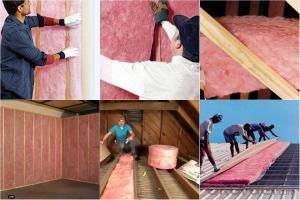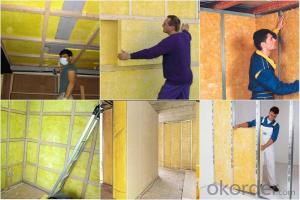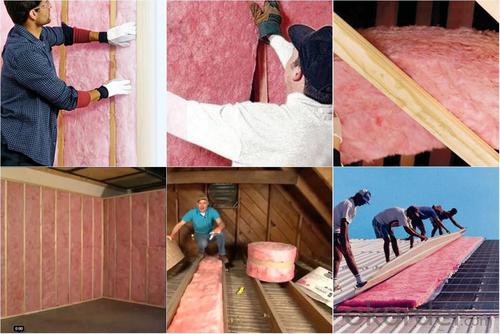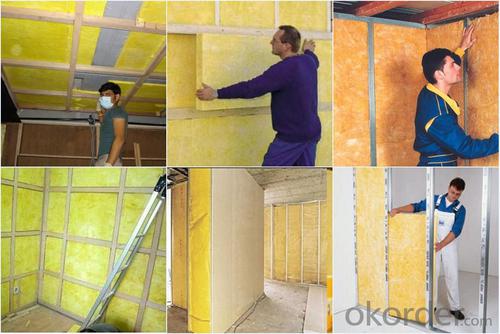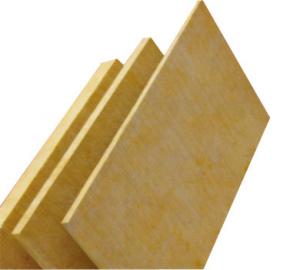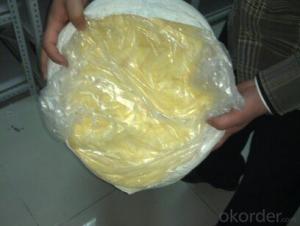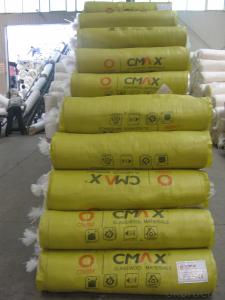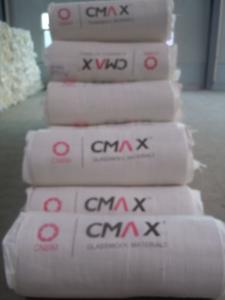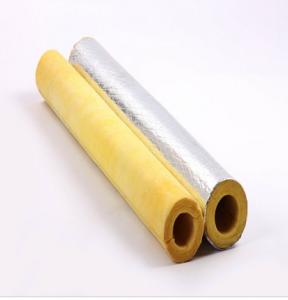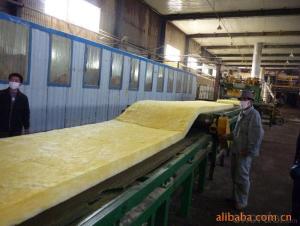Best Price Fiber Glass Wool Tube Insulation 50mm 70kg/m3
- Loading Port:
- Tianjin
- Payment Terms:
- TT OR LC
- Min Order Qty:
- 5000 m²
- Supply Capability:
- 20000 m²/month
OKorder Service Pledge
OKorder Financial Service
You Might Also Like
1.Description of Glass Wool Blanket:
At the system HOT END, the raw materials are dosed, mixed, melted, fiberized, impregnated with a special binder and formed into a primitive mat of very fine fiber glass. Continuous conveyors transport the mat to the COLD END of the plant for binder polymerization. The product is then cut to shape and packed for shipping.
Glass wool blanket, glass wool board, glass wool pipe, which made from glass wool, largely use in construction, chemical, electronic, electricity, metallurgy, energy industry and community with good performance in heat preservation, heat insulation, sound absorption.
2.Main features of Glass Wool Blanket:
1) Heat-preservation and heat-insulation, sound absorption and noise reduction
2) Damp proof property
3) Excellent fire proof performance
4) Thermal stability, high temperature heat-stability, durability, high temperature shrinkage resistance
3.Glass Wool Blanket Images:
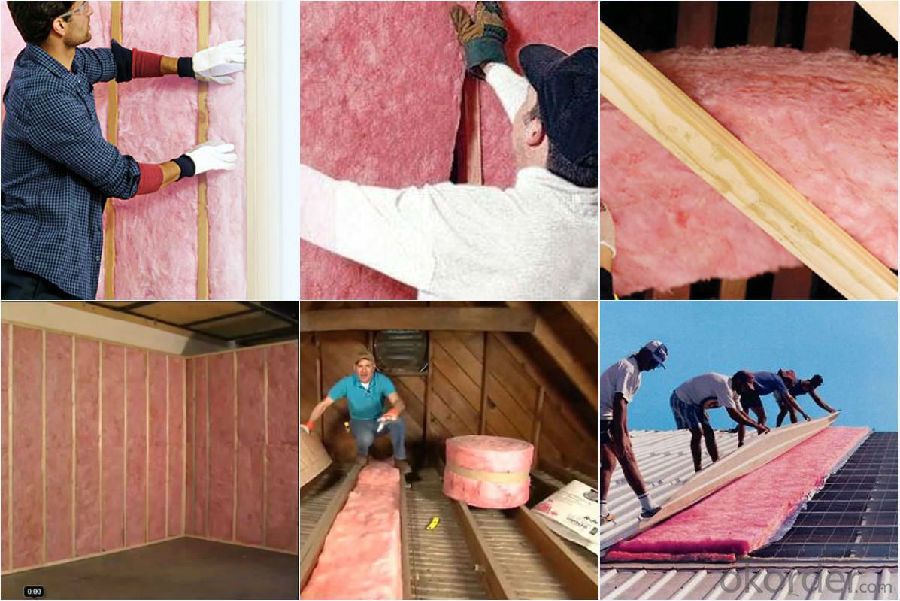
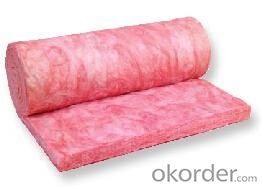
4. Glass Wool Insulation Blanket Technical Parameters:
Property | High/low temperature resistance, oil and fuel resistance, weathering resistance, O zone resistance etc. |
Shape | According to your requirement. |
Color | Any color is available ,according to your requirements. |
Material | NBR, CR, SBR, EPDM, IIR, NR, EP, Silicone, VITON etc. |
Hardness | 30-90ShoreA |
Delivery | In 10 days |
Packing | Plastic bag & carton box or according to your requirements. |
Application | Electronic field, industrial machine & equipment, house-hold appliance, telecommunication, automobile, medical equipment industry etc. |
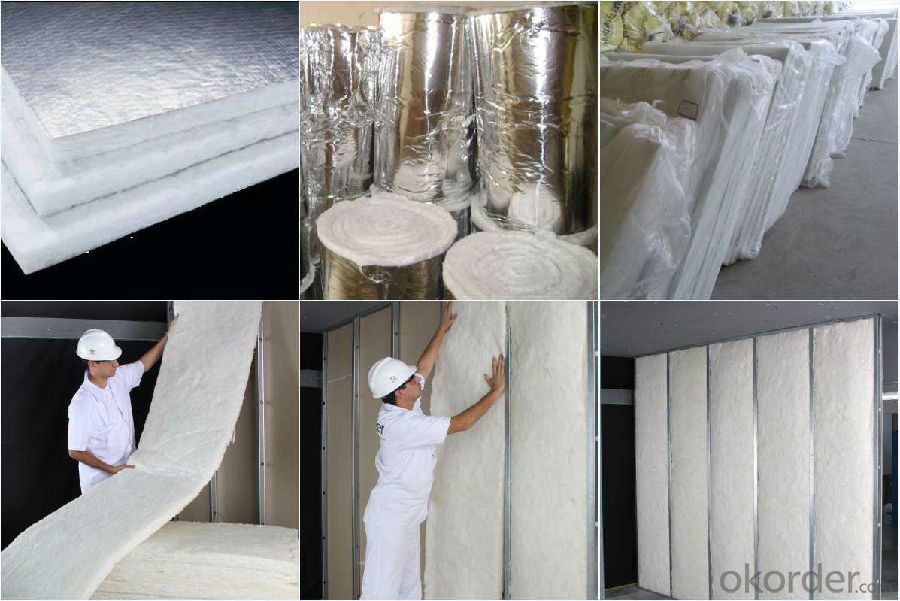
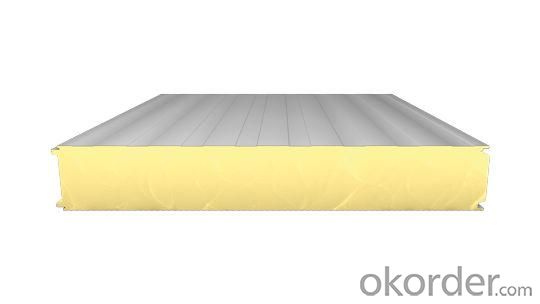
5.FAQ
We have organized several common questions for our clients,may help you sincerely:
①How about your company?
A world class manufacturer & supplier of Glass Wool Blanket is one of the large scale professional investment casting production bases in China,consisting of both casting foundry forging and machining factory. Annually more than 8000 tons Precision casting and forging parts are exported to markets in Europe,America and Japan. OEM casting and forging service available according to customer’s requirement.
②How to guarantee the quality of the products?
We have established the international advanced quality management system every link from raw material to final product we have strict quality test; We resolutely put an end to unqualified products flowing into the market. At the same time, we will provide necessary follow-up service assurance.
- Q: Is fiberglass mat tissue suitable for wind energy applications?
- Indeed, fiberglass mat tissue proves to be a fitting choice for wind energy applications. This lightweight and resilient material is often employed in the fabrication of wind turbine blades. It possesses remarkable strength and rigidity, rendering it well-suited to endure the formidable strains and pressures exerted on wind turbines. Furthermore, fiberglass mat tissue exhibits resistance against corrosion and deterioration caused by UV radiation, thereby guaranteeing the durability and functionality of wind turbine blades. In summary, the integration of fiberglass mat tissue into wind energy applications enables the creation of efficient and dependable wind turbines capable of generating clean and sustainable energy.
- Q: Is fiberglass mat tissue suitable for high-temperature applications?
- No, fiberglass mat tissue is not suitable for high-temperature applications. Fiberglass mat tissue is typically made from thin strands of glass fibers that are woven together to create a non-woven fabric. While fiberglass is known for its strength and durability, it has a low melting point and is not designed to withstand high temperatures. When exposed to high temperatures, fiberglass mat tissue can melt or degrade, leading to structural weakness and potential failure. Therefore, it is important to select a different material that is specifically designed for high-temperature applications, such as ceramic or silicone-based products.
- Q: What is the moisture vapor transmission rate of fiberglass mat tissue?
- The moisture vapor transmission rate of fiberglass mat tissue is subject to variation based on factors like the material's specific composition and thickness. As a general rule, fiberglass mat tissue tends to exhibit a relatively low moisture vapor transmission rate. Its ability to facilitate the passage of moisture vapor is comparatively limited. Consequently, this attribute renders it suitable for applications where moisture resistance is sought, such as in insulation or construction materials. However, it is crucial to acknowledge that the moisture vapor transmission rate of fiberglass mat tissue can be additionally impacted by other variables, including the existence of coatings or laminations. These additional elements have the potential to enhance or restrict its moisture vapor transmission properties.
- Q: What are the different thickness tolerances for fiberglass mat tissue?
- The different thickness tolerances for fiberglass mat tissue can vary depending on the specific product and manufacturer. However, common thickness tolerances range from +/- 0.001 inches to +/- 0.005 inches.
- Q: Can fiberglass mat tissue be used for attic insulation?
- Typically, fiberglass mat tissue is not the primary insulation material used in attics. Its purpose is to complement other insulation materials, like fiberglass batts or blown-in insulation, in order to enhance their performance and provide some thermal resistance. Fiberglass mat tissue is frequently utilized as a facing material for insulation products, serving as a vapor barrier or a reinforcement layer. Although it can enhance the durability and moisture resistance of the insulation, its main function is not to offer significant thermal insulation on its own. When insulating an attic, it is more common to employ materials specifically designed for thermal insulation, such as fiberglass batts, cellulose, or spray foam insulation. These materials possess higher R-values and are more effective at minimizing heat transfer, which is essential for maintaining a comfortable indoor temperature and achieving energy efficiency. In conclusion, fiberglass mat tissue may possess insulation properties, but its primary purpose is to enhance the performance of other insulation materials rather than being used as the sole insulation in an attic.
- Q: What is the maximum temperature that fiberglass mat tissue can withstand?
- The maximum temperature that fiberglass mat tissue can withstand depends on the specific type of fiberglass material being used. Generally, most fiberglass mat tissues are designed to withstand temperatures up to 600 degrees Fahrenheit (315 degrees Celsius). However, it is important to note that the temperature tolerance can vary depending on factors such as the thickness of the material, the manufacturing process, and the specific application. It is always advisable to consult the manufacturer's specifications or technical data sheets for accurate information regarding the maximum temperature resistance of a particular fiberglass mat tissue.
- Q: Can fiberglass mat tissue be used for repairing automotive parts?
- Yes, fiberglass mat tissue can be used for repairing automotive parts. Fiberglass mat tissue is a versatile material that is commonly used for reinforcing and repairing various surfaces, including automotive parts. It is particularly useful for repairing parts that are made of fiberglass, such as car bodies and panels. Fiberglass mat tissue is a thin and flexible material that is made up of randomly oriented fiberglass strands. It is designed to be easily molded and shaped to fit the contours of the damaged automotive part. The mat tissue is typically applied with a resin, such as polyester or epoxy, which binds the fibers together and creates a strong and durable repair. When used for automotive repairs, fiberglass mat tissue provides several benefits. Firstly, it is lightweight, which is important for maintaining the overall weight and balance of the vehicle. Additionally, it is resistant to corrosion and can withstand exposure to various weather conditions, making it suitable for all types of automotive repairs. Moreover, fiberglass mat tissue is known for its high tensile strength, which means that it can withstand the stresses and strains that automotive parts may experience during normal use. This makes it an ideal choice for repairing damaged or weakened areas, such as cracks, holes, or dents in car bodies or panels. In conclusion, fiberglass mat tissue can be effectively used for repairing automotive parts, especially those made of fiberglass. Its versatility, lightweight nature, resistance to corrosion, and high tensile strength make it an excellent choice for restoring the structural integrity and appearance of damaged automotive parts.
- Q: Can fiberglass mat tissue be used for insulating metal roofs?
- Indeed, insulating metal roofs is possible with the utilization of fiberglass mat tissue. The thermal properties and durability of fiberglass make it a favored selection for roof insulation. By obstructing heat transfer, it aids in maintaining a cooler interior during scorching weather and a warmer one during chilly weather. Moreover, fiberglass is lightweight and straightforward to install, rendering it a pragmatic choice for metal roofs. Generally, the fiberglass mat tissue is positioned between the metal roof panels and the building's interior, furnishing an efficient insulation layer.
- Q: Can fiberglass mat tissue be used for making decorative panels?
- Fiberglass mat tissue is a versatile material commonly used in construction and manufacturing industries. It consists of randomly oriented glass fibers bonded together with a binder, resulting in a strong and durable product suitable for various applications. For decorative panels, fiberglass mat tissue is an excellent option. It can be molded into different shapes and sizes, allowing for intricate and unique designs. The material is lightweight and easy to handle and install. Additionally, it has excellent dimensional stability, ensuring it won't warp or deform over time. Moreover, fiberglass mat tissue is highly resistant to moisture, chemicals, and UV radiation, making it suitable for both indoor and outdoor use. It can withstand harsh weather conditions without rotting or decaying. This durability ensures that decorative panels made from fiberglass mat tissue will maintain their appearance and functionality for an extended period. When it comes to finishing, fiberglass mat tissue can be easily painted or coated to achieve the desired aesthetic. It can also be laminated with other materials, such as wood veneer or decorative films, to enhance its visual appeal. This flexibility offers endless design possibilities, making fiberglass mat tissue an excellent choice for creating decorative panels. In conclusion, fiberglass mat tissue is a reliable material for making decorative panels. Its strength, durability, and versatility make it suitable for various indoor and outdoor applications. Whether you want to create unique designs or enhance the aesthetics of a space, fiberglass mat tissue provides the necessary qualities to achieve your desired outcome.
- Q: Is fiberglass mat tissue suitable for aerospace repairs?
- Yes, fiberglass mat tissue is suitable for aerospace repairs. Fiberglass mat tissue is a lightweight and flexible material that can be easily molded and applied to various surfaces. It is known for its high strength-to-weight ratio, making it ideal for applications where weight is a critical factor, such as aerospace repairs. Fiberglass mat tissue is commonly used in aerospace repairs to reinforce damaged or weakened areas of the aircraft structure. It provides excellent structural integrity and durability, ensuring the repaired area can withstand the extreme conditions and stresses encountered during flight. Furthermore, fiberglass mat tissue is compatible with various resin systems, including epoxy and polyester, allowing for efficient bonding and ensuring a reliable repair. Its versatility also enables it to be used in both interior and exterior repairs, such as repairing composite panels, reinforcing wing sections, or repairing damaged fuselage areas. In addition to its mechanical properties, fiberglass mat tissue also exhibits excellent resistance to corrosion, moisture, and chemicals, enhancing the longevity of the repaired components. This is particularly crucial in aerospace applications, where the aircraft is exposed to harsh environmental conditions. Overall, fiberglass mat tissue is a suitable material for aerospace repairs due to its lightweight, high strength, versatility, and resistance to environmental factors. Its use in the aerospace industry has been well-established, and it continues to be a reliable choice for repairing and reinforcing critical aircraft components.
Send your message to us
Best Price Fiber Glass Wool Tube Insulation 50mm 70kg/m3
- Loading Port:
- Tianjin
- Payment Terms:
- TT OR LC
- Min Order Qty:
- 5000 m²
- Supply Capability:
- 20000 m²/month
OKorder Service Pledge
OKorder Financial Service
Similar products
Hot products
Hot Searches
Related keywords
